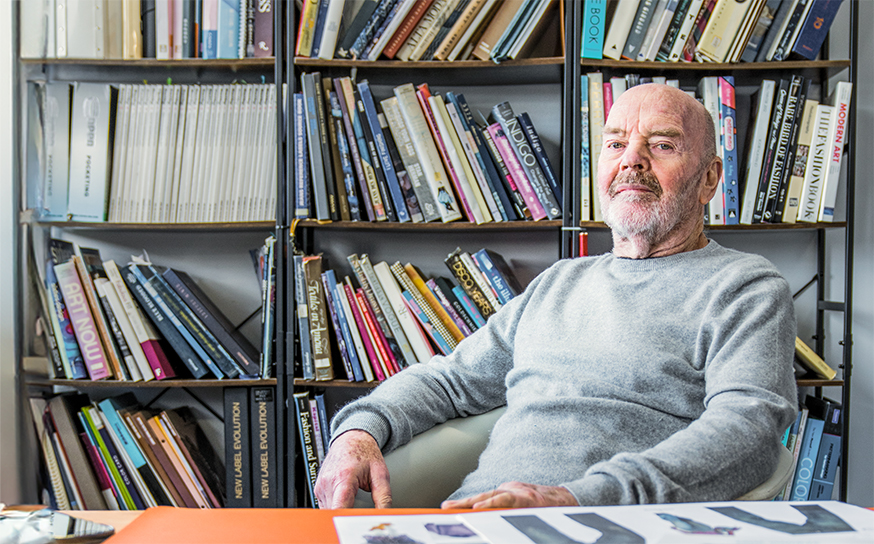
Feeling Fine
From how to slow down the aging process with bioidentical hormones to the safest, most effective birth control methods, we get the latest take on women’s health from Dr. Shira Miller.
-
CategoryPeople
-
PHOTOGRAPHED BYSTARLA FORTUNATO

Dr. Shira Miller is the founder and medical director of The Integrative Center for Health & Wellness, a concierge consultative service in Sherman Oaks. She specializes in replacing hormones that are lost (in both men and women) during the aging process. And that is where VB Editor Linda Grasso begins her questioning.
 Prescribing hormones for menopausal women can cause women to get their periods again. That sounds a bit unnatural…
Prescribing hormones for menopausal women can cause women to get their periods again. That sounds a bit unnatural…
My primary goal is to optimize health and reduce the risk of chronic diseases in patients. Once a woman loses estrogen and progesterone (during menopause/postmenopause), she begins to have a myriad of symptoms (disturbed sleep, fatigue, body aches, mental fog, lack of femininity), and her health starts declining. In addition, the risk of chronic diseases begins increasing (osteoporosis, heart disease, dementia).
So how do you treat those low hormone levels?
I replace the actual hormones that are deficient in a way which mimics how women’s hormone cycles normally work. This means prescribing bioidentical hormones in a cyclic fashion; not non-bioidentical hormones that look similar to what the body would have produced. Similar is not good enough—an exact copy needs to be replaced. And just to be clear, in menopause and postmenopause, estrogen and progesterone levels are nil or almost nil. The male equivalent of menopause is castration.
So essentially what you are trying to do is mimic the reproductive cycle phase of life for women– correct?
Exactly. During a woman’s reproductive years she is at peak health. Mimicking a reproductive cycle means essentially recreating a woman’s monthly rhythm of estrogen and progesterone. And it is these rhythms that subsequently cause regular menstrual periods. The goal isn’t primarily the menstrual period (which is simply due to estrogen and progesterone rhythms reaching the uterus). The primary goal is to restore estrogen and progesterone hormone rhythms to the entire body.
Can’t taking high levels of estrogen cause cancer?
The 2002 Women’s Health Initiative study, which publicized the idea that HRT causes cancer, is actually flawed in several ways. A later analysis of the study showed that women taking only the horse estrogens (and not the alien progesterone) had a 20% decreased risk of breast cancer.
That being said, if a woman already has breast cancer for example, then both BHRT or HRT could cause that cancer to grow. Paradoxically, high dose estrogen has been used for over 50 years in the treatment of breast cancer. It gets complicated.
How important is it to have an internist who integrates all types of medicine—eastern/western and some of what my friends call “hocus pocus” treatments?
For me, the goal is to provide good medicine, and many times that means using tools found outside the box of traditional medicine. Therefore, it’s important that patients have a physician who is willing to learn and do whatever it takes to help patients.
“If you find a physician who respects you as his/her equal, and is constantly learning and open to new ideas, then that’s a good catch!”
I loathe the ageism. And yet I find myself seeking out younger doctors for their more progressive, integrative approaches. Thoughts?
There are young doctors who are not willing to learn new information and mature doctors who are. If you find a physician who respects you as his/her equal, and is constantly learning and open to new ideas, then that’s a good catch!
A comprehensive evaluation and blood work are necessary to look for the cause, of course. If declining estrogen levels (perimenopause) are the culprit, cyclic can be initiated.
When we were in college everyone was on “the pill.” Is that what we should be recommending for our daughters?
Birth control pills are made up of non-bioidentical hormones and severely disrupt those reproductive rhythms I was raving about … so I don’t recommend them if there’s an alternative. Furthermore, I don’t recommend any hormone treatment that interferes with natural hormone rhythms, unless it’s an emergency.
Can you share some nondisruptive alternatives?
The copper IUD is one, although it can still cause problems in some women. A woman needs to research options and discuss them with a knowledgeable gynecologist. The decision shouldn’t be made in haste.
Many women these days take medicine for a thyroid condition. I told a holistic nutritionist friend recently that I took the drug Synthroid and she was incredulous that I’d “put chemicals” in my body. Should women with thyroid conditions—hyper or hypo—seek alternatives?
Yes, there are several different forms of thyroid medication, and ideally it would be best to find a physician who is familiar with prescribing different forms. For example, some people convert Synthroid to active thyroid hormone and do great, but some don’t and continue to feel fatigued. These patients would likely need to additionally be prescribed active thyroid hormone.
Architect May Sung Comes to The Rescue on a Studio City Reno Gone Wild
In the right hands…finally!











